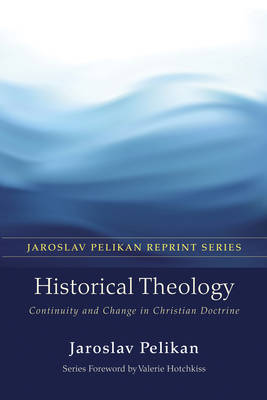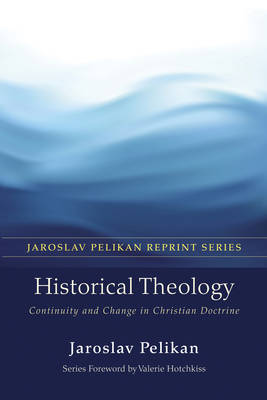
Je cadeautjes zeker op tijd in huis hebben voor de feestdagen? Kom langs in onze winkels en vind het perfecte geschenk!
- Afhalen na 1 uur in een winkel met voorraad
- Gratis thuislevering in België vanaf € 30
- Ruim aanbod met 7 miljoen producten
Je cadeautjes zeker op tijd in huis hebben voor de feestdagen? Kom langs in onze winkels en vind het perfecte geschenk!
- Afhalen na 1 uur in een winkel met voorraad
- Gratis thuislevering in België vanaf € 30
- Ruim aanbod met 7 miljoen producten
Zoeken
€ 44,45
+ 88 punten
Omschrijving
Change is a universal phenomenon that commands the attention of the historian. For Christian theology, change raises special difficulties. How are we to reconcile the notion of the revelation of an unchanging God, who is abiding truth, with the notion of the pervading mutability of all human affairs? This problem, which is as old as religion, is intensified by the Christian belief in the fullness and finality of the revelation made through Jesus Christ. Professor Pelikan begins his study of historical theology with this basic problem and traces the origins of the difficulties that inevitably follow upon the admission of the possibility of change. His investigations lead him to critically examine the dogmatic solution of Vincent of Lerins, the later dialectical interpretation of Abelard, the approach of Thomas Aquinas, and finally, the nineteenth century's Adolf von Harnack to propose a working definition of Christian doctrine and of the task of the historical theologian. Pelikan's work is a perceptive and penetrating study of the interaction of history and theology. Theology must be historical because man is historical. To neglect history, or worse still, to renounce it, is to deny man and theology their common future. Historical Theology is a worthy introduction to a task that must continually seek to weld past, present, and future into a living whole.
Specificaties
Betrokkenen
- Auteur(s):
- Uitgeverij:
Inhoud
- Aantal bladzijden:
- 242
- Taal:
- Engels
- Reeks:
Eigenschappen
- Productcode (EAN):
- 9781625646477
- Verschijningsdatum:
- 1/02/2014
- Uitvoering:
- Paperback
- Formaat:
- Trade paperback (VS)
- Afmetingen:
- 152 mm x 226 mm
- Gewicht:
- 376 g

Alleen bij Standaard Boekhandel
+ 88 punten op je klantenkaart van Standaard Boekhandel
Beoordelingen
We publiceren alleen reviews die voldoen aan de voorwaarden voor reviews. Bekijk onze voorwaarden voor reviews.









